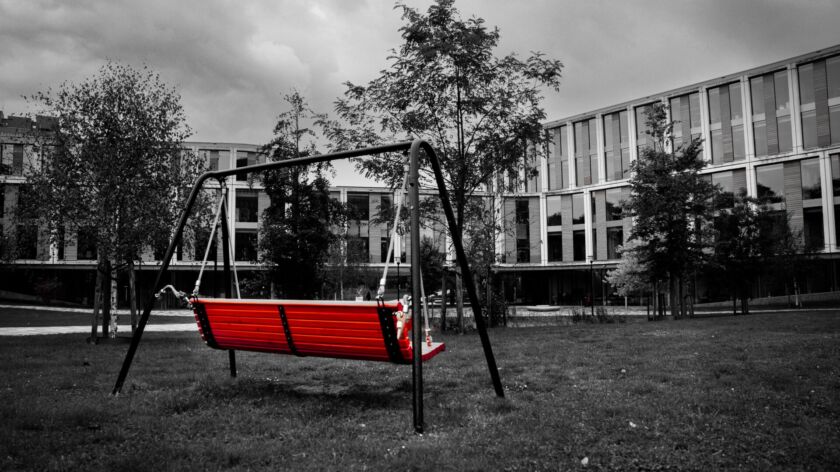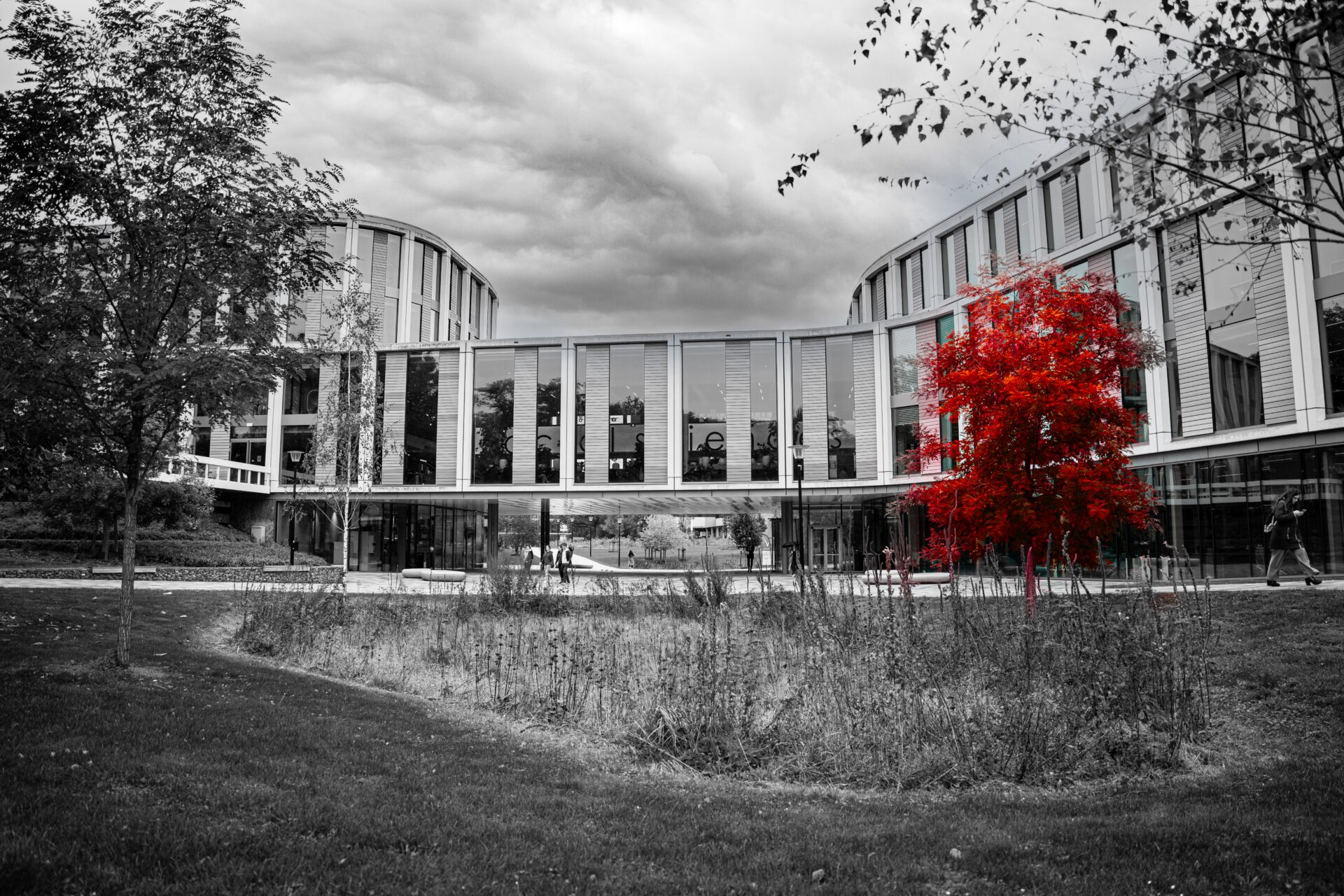Faculty of Social Sciences bursting at the seams, but still required to save one million this year
-
 Foto en beeldbewerking: Johannes Fiebig
Foto en beeldbewerking: Johannes Fiebig
After years of generous spending, Radboud University is once again facing major cuts. How are the faculties dealing with this? Crisis measures have been in place at the Faculty of Social Sciences since the summer. ‘It will be harder to get a permanent position.’
The Maria Montessori Building, which opened its doors in early 2021, is attracting students like flies. Over 6,000 are attending lectures there this year. That is a 27% increase from six years ago.
And yet the spectre of austerity is haunting the corridors of the Faculty of Social Sciences. The toxic cocktail of cuts from The Hague, expected drop in student numbers, and higher wages means that the social sciences also have to keep a hand on the purse strings.
Hand on the purse strings
No faculty or university department will escape the cuts. But how do you handle such a project? In the coming weeks, VOX will be talking with the faculties: What can they save on, and what do they want to maintain at all costs? How much should these changes deliver and what will the staff and students notice? This is the second article in this series. For the first article in the series, an interview with the Executive Board, see here.
To avoid getting too far into debt, the Faculty is already deploying crisis measures this year. Contracts are in principle no longer extended, promoted, or renewed. Employees are urged to use up their leave and only submit balanced budgets for grant applications – the Faculty no longer contributes additional funding. Perhaps less dramatically, people have to bring their own sandwiches to team activities –one of the budget cuts is catering.
‘Without those measures, we were looking at a deficit of €2.6 million by the end of this year,’ says Suzanne Boelens, Administrative Director. ‘We now hope to reduce that figure to €1.6 million.’ That deficit is within the permitted margins: like all faculties, the Faculty of Social Sciences has agreed with the Executive Board to work towards a balanced budget in 2027. For now, they are still allowed to spend a little more than they earn.
As guardian of the Faculty finances, Boelens first wants to have a close look at operations. ‘The support services are incredibly important, but they are ultimately there to support teaching, research, and our impact as a Faculty. The need to work more efficiently is very great at the moment.’
This means that we will not automatically terminate the temporary contracts of lecturers, whose teaching positions are hard to fill. That consideration will be made on a case-by-case basis. However, it will become harder for young scholars to get their careers off to a flying start. Boelens: ‘We will be hiring fewer PhD candidates and assistant professors. People are less likely to get permanent positions.’

The Faculty Board is now mostly busy making sure that staff members are not overworking. ‘You can give lecturers less teaching time,’ says Dean Evelyn Kroesbergen. ‘But that is not a good way to save money, because lecturers will work those hours anyway. The only thing it does is increase the workload.’
Some faculties, such as Arts and Philosophy, have increased their staff’s teaching hours at the expense of research time. That way, a faculty needs fewer staff members to provide all the teaching. ‘We still work with a fifty-fifty model,’ says Kroesbergen. ‘We value teaching and research equally.’
Perhaps the biggest challenge, Kroesbergen and Doelens both agree, is how to keep morale high – to look the austerity spectre in the eye without falling prey to negative thinking. Kroesbergen: ‘Austerity is no fun, but it is also an opportunity to improve things. For example, we have been talking about strengthening cooperation between the faculties for a long time. Maybe this is the right time to do it.’ Other faculty plans, for example around Recognition & Rewards, are proceeding as planned.




